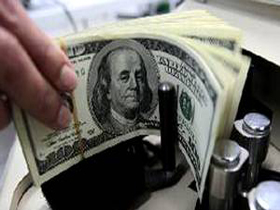Noted experts have cautioned the government against giving loans to any business entity from the forex reserve, saying that such a move would be highly risky and go against public interest.
KHONDKAR IBRAHIM KHALED
Ex-deputy governor of Bangladesh Bank
The central bank should not allow any private company to
take a loan from the foreign exchange reserve under any circumstances, observed Khaled.
If the company fails to pay back the loan on time, Bangladesh Bank will face big troubles in its financial activities relating to the foreign exchange reserve.
The country’s forex reserve has seen an upward trend in recent months and the policymakers should take care of the fund properly, he noted.
He also mentioned that the government had earlier taken a cautious stance on utilising the forex reserve to materialise its development projects, and it should maintain that stance.
ANU MUHAMMAD
Professor at Jahangirnagar University
If the central bank allows Orion Group to get a loan from the forex reserve, this will have two dreadful impacts simultaneously, said Anu Muhammad.
“Firstly, an ecological imbalance will occur when the coal-based power plant starts production. Secondly, the existing indiscipline in the financial sector will deepen further.”
The coal-based power plant will wreck the environment to a great extent. The forex reserve should not be used for implementing such a project, noted the eminent economist.
SHAMSUL ALAM
Energy adviser to CAB
Orion Group does not have any financial and technical skills to set up a big power plant, said Shamsul.
Some companies like Orion had earlier managed government approvals to set up power plants without taking part in open tenders, which was totally unfair, said the energy adviser to the Consumers Association of Bangladesh.
He questioned why the business entity would set up a power plant by taking loans from the forex reserve whereas the government itself can implement such a project with its funds.
“This will go against public interest,” he added.
BADRUL IMAM
Professor at Dhaka University
The Power Cell, a wing of the power, energy and mineral resources ministry, has recently put forward some suggestions, urging the government not to set up any more coal-based power plants, said Badrul.
The government had earlier faced an awkward situation due to its approval to set up power plants indiscriminately, mentioned the professor of geology.
“It will face the same situation once again if any private company is permitted to build coal-based power plants by using the forex reserve.
“We don’t need coal-based power plants anymore as the production capacity of the country’s power plants is much higher than the existing requirement,” he noted.
For instance, the country’s electricity demand is now a maximum of 12,000-13,000MW against the production capacity of 20,383MW, he said referring to Bangladesh Power Development Board (BPDB) data.
In 2010, the government planned to meet half of its total electricity requirement by 2041 from coal-based power plants, but it revised the roadmap in 2016 and decided to meet 35 percent of the requirement from such plants.
Last month, the Power Cell suggested that the government produce only 5,500MW electricity from coal-based power plants, Badrul said.
Only two coal-based power plants — Payra and Barapukuria — have so far gone into production. Another 14 such plants are now at various stages of construction, which is too many given the size of the country, he pointed out.
Seven of the 16 projects are being bankrolled by private companies, according to the BPDB data.
Once these coal-based power plants start generating electricity, they will cause severe pollution damaging the environment, he noted.
DR Iftekharuzzaman
Executive director of TIB
The government has recently decided not to set up more coal-based power plant, responding to the local and global calls for moving towards sustainable energy, said Iftekharuzzaman.
“No commercial bank should even finance any coal-based power plant project as the government now seeks to encourage renewable energy,” said the executive director of Transparency International Bangladesh.
But it is surprising that Bangladesh Bank responded positively to the credit proposal of Orion Group, he said.
“The central bank should have scrapped the proposal at the primary stage,” Iftekharuzzaman said.
Both the BB and Agrani Bank should consider the Rupali Bank’s concern about financing the project, he said.
“There may be a collusion between a section of the central bank’s officials and the business entity. This has helped Orion to manage the initial positive response from the central bank to bag the fund,” he said.

